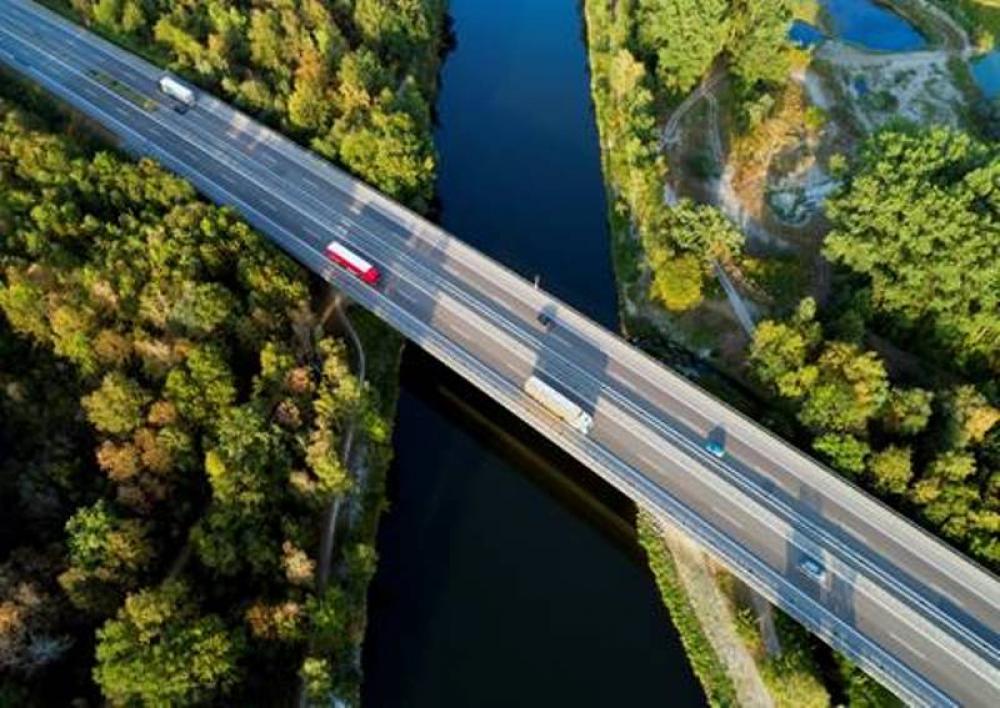 ESCAP
ESCAP Asia-Pacific countries commit to advance regional cooperation for sustainable connectivity
Bangkok: Recognising that the COVID-19 pandemic has caused widespread socio-economic impacts and disruptions across Asia-Pacific, high-level officials called for a rethink on the future development of sustainable transport connectivity and mobility in the region at the sixth session of the Committee on Transport on Friday, an Economic and Social Commission for Asia and the Pacific (ESCAP) press release notified.
Convened by ESCAP, the two-day meeting highlighted pressing regional priorities and areas for policy interventions in the transport sector. Central to discussions were transformative actions for a more sustainable, efficient and resilient regional transport connectivity against the backdrop of the COVID-19 pandemic.
"By anchoring regional connectivity, there is a real opportunity to transform transport systems and services to follow a low-carbon development path, increase the share of clean energy and adopt innovations and emerging smart transport technologies to improve environmental sustainability in Asia and the Pacific,” said United Nations Under-Secretary-General and Executive Secretary of ESCAP Ms. Armida Salsiah Alisjahbana.
H.E. Mr. Saksayam Chidchob, Minister of Transport, Thailand in his opening remarks, said, “Our region faces significant challenges due to the COVID-19 pandemic with the transport sector being one of the hardest hit, and our collective efforts to implement the 2030 Agenda for Sustainable Development now face strong headwinds.”
The Asia-Pacific region has made great efforts to preserve transport connectivity during the pandemic. Member countries of the Asian Highway network have maintained all or a significant part of their land borders open for freight. Freight transport has proceeded with limited interruptions along the Trans-Asian Railway network.
The pandemic has also created great momentum for digitization and shown that there is high potential for a more balanced and sustainable modal split of freight transport, as the use of rail has grown to compensate for the interruptions in road transport operations.
However, significant financial losses sustained by the transport sector will have a lasting impact on its competitiveness in the aftermath of the pandemic. The Asia road freight industry is expected to experience a turnover decline of 21 per cent in 2020 and rail freight by US$1.7 billion for 2020 and 2021.
In this regard, the Committee also discussed the direction of the next phase of the Regional Action Programme for Sustainable Transport Connectivity in Asia and the Pacific (2022 – 2026), which will be further developed, in close consultation with member countries and submitted for endorsement at the fourth Ministerial Conference on Transport in October 2021.
The next phase of the Regional Action Programme is expected to include accelerated and transformational changes towards more resilient, environmentally sustainable, and safer transport and mobility services in the region. Ambitious actions to incorporate broader social development elements such as gender equality, safety, accessibility, and inclusion in the transport sector were also proposed.
Held every two years, the Committee on Transport provides countries in the Asia-Pacific region with a platform to exchange views, good practices and recommend policies to align the transport sector with sustainable development objectives. The sixth session of the Committee was attended by high-level participants from 38 member countries and 32 organisations.
Support Our Journalism
We cannot do without you.. your contribution supports unbiased journalism
IBNS is not driven by any ism- not wokeism, not racism, not skewed secularism, not hyper right-wing or left liberal ideals, nor by any hardline religious beliefs or hyper nationalism. We want to serve you good old objective news, as they are. We do not judge or preach. We let people decide for themselves. We only try to present factual and well-sourced news.







